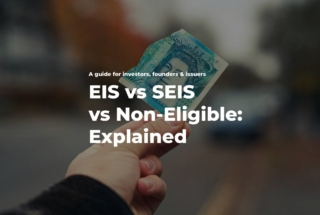FCA Simplifies Public Listing and Improves Secondary Trading: Wholesale Markets Review
No time to read? Let AI give you a quick summary of this article.
The UK is updating rules and regulations within the Wholesale Markets Review1. This document was created to improve the UK’s regulation in the secondary market to boost the competitiveness of the UK financial sector while maintaining high regulatory standards. While the document contains a lot of suggestions on the changes in the existing regulation, some advancements have been already made.
What you will learn in this post:
Why FCA Simplifies Public Listing Rules
For years, the UK has been a financial hub for Europe. However, the public listing regime in the UK was often referred to as “too complicated and onerous”. As a result, since 2008, listings in the UK have reduced by 40%2, according to The UK Listing Review3. Of course, a decision to list is based not only on the public listing rules and their complexity but also on a number of other factors such as taxation, the availability of capital, but simplifying the listing rules will be a step forward.
Now, the FCA is working on introducing significant changes to the public listing rules. So, the existing “standard” and “premium” listing segments will be replaced with a single category of equity shares in commercial companies. This change will eliminate the eligibility barrier for earlier-stage companies and facilitate the public listing procedure for dual class share structures. The new rules are also going to remove the mandatory shareholder votes on transactions such as acquisitions. It, in turn, will reduce problems and frictions for the companies pursuing their development strategies.
The FCA’s aim is to elaborate a set of rules that would enable listing based on disclosure and engagement rather than on a rigid set of rules.
This work on public listing rules is an important part of the FCA 3-year strategy4 and is aimed at strengthening the UK wholesale markets and making them attractive for investors and competitive.
How FCA Updates the Secondary Market Security Trading Rules
Previously, the FCA issued a Consultation Paper5 which is a part of the Wholesale Market Review where it was indicated that burdensome and unnecessary requirements shall be removed as soon as possible. The new rules shall improve the quality of deal execution for investors and increase post-trade transparency so that investors can better identify transactions and access the price discovery process.
The changes will apply to:
- Trading venues
- UK branches of foreign companies that provide investment services and related activities
- Investment companies.
The new rules will simplify the reporting processes on over-the-counter transactions and will be applied to all classes of financial instruments.
The UK trading venues will be able to use reference prices from foreign sources if they are reliable.
All in all, the new rules are expected to make such positive effects as:
- Enhance the quality of deal execution by significantly lowering the costs of trading, increasing liquidity, and reducing the market impact.
- Post-trade transparency for equities will be increased.
- Remove restrictions that prevent trading venues from using the same tick size as the one used by foreign trading venues.
Also, as a part of the new changes, the FCA introduces a Designated Reporter regime that will establish simpler procedures to report on over-the-counter transactions.
The new post-trade requirements, as well as a new Designated Reported regime, will come into force in April 20246. Other changes come into force immediately.
For now, all the affected companies will have to upgrade their reporting systems to comply with the changes. The FCA is checking on how to minimize the impact of changes and make the transition to the new rules as smooth as possible while ensuring the companies continue to report correctly. The regulator is also going to work on good practices for trading venues and investment firms in a case of a trading venue outage.
How new public listing rules affect crowdfunding platforms
Can the possible changes in the new public listing rules undermine the online business of crowdinvesting platforms and increase competition?
Investment platforms have been an alternative source of funding for many businesses because there was no need for the latter to go IPO. Despite the new updates, platforms should probably put extra effort into marketing and promotion of crowdfunding to win more clients.
IPO vs Crowdfunding
Earlier, for an IPO, a company had to be listed on a stock exchange which used to be a lengthy and costly procedure and is in most cases not affordable for startups. Also, businesses offering an IPO had to meet strict eligibility criteria. After submitting all the documentation for registering on a stock exchange, the company had to hire an investment bank that underwrites an IPO. Determining the initial price of the company’s securities was also its task. The company had to submit information about the business and indicate what securities will be offered and a plan on how the IPO will be performed.
Legally, there were no limitations for investors. However, the costs needed to launch an IPO were so high that eventually, only high net-worth and venture investors could buy shares of a company.
Because of all those complications, most startups used to address their financing needs to crowdfunding platforms.
To raise funds via crowdfunding, companies do not have to comply with a long list of requirements, and thus, the process is not so costly and time-demanding. Offerings on crowdfunding platforms are accessible not only to high-net-worth investors but also to individuals.
Now, considering the possible changes in the new public listing rules, companies may become more interested in IPOs rather than raising funds via a crowdfunding platform. Therefore, crowdinvesting platforms may consider increasing their marketing activities and advertising their services more actively.
Conclusions
The introduced changes to the UK regulation will increase the market attractiveness for investors and motivate more companies to list and grow their businesses in the UK. Further changes will be introduced as planned to promote the UK market growth and competition.
If you are looking to start a crowdfunding platform in the UK and need crowdfunding software, check out LenderKit. We helped many investment businesses launch in the UK, so we might as well become your next tech partner.
To learn more about the LenderKit investment software solutions, reach out to our fintech strategist for an online demo.

Article sources:
- PDF (https://assets.publishing.service.gov.uk/government/uploads/system/uploads/at...)
- FCA proposes to simplify rules to help encourage companies to list in the UK | FCA
- UK Listings Review - GOV.UK
- PDF (https://www.fca.org.uk/publication/corporate/our-strategy-2022-25.pdf)
- PDF (https://www.fca.org.uk/publication/consultation/cp22-12.pdf)
- PS23/4: Improving equity secondary markets | FCA



